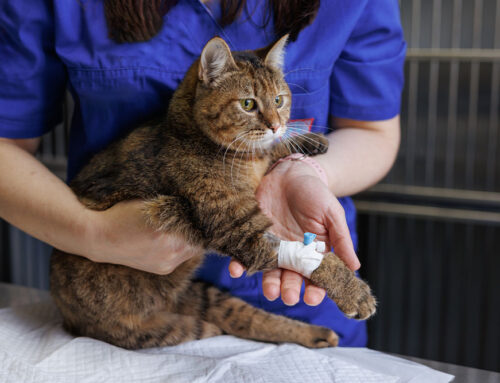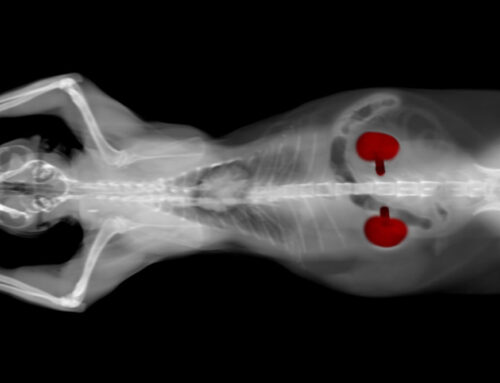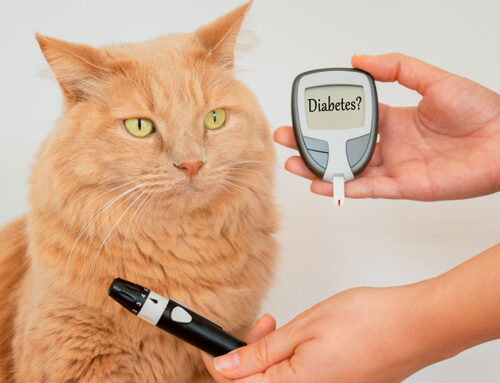Heartworm disease is a term that strikes fear in the hearts of pet owners everywhere and with good reason. This potentially fatal disease is present in all 50 states and can be transmitted year-round. Fortunately, prevention is safe, effective, and convenient. Here’s what the Greenfield Veterinary Clinic team wants every pet owner to know about heartworm disease and prevention.
Understanding heartworm disease in pets
Heartworm disease is a potentially fatal condition caused by the parasitic worm Dirofilaria immitis. Heartworms primarily infect dogs, cats, and other mammals, including wolves, foxes, and ferrets. Mosquitoes are the sole transmission source, spreading the microscopic heartworm larvae from one animal to another.
No pet is safe: Heartworm disease transmission
When a mosquito bites an infected animal, the insect ingests heartworm larvae—microfilariae—along with a blood meal. Inside the mosquito, these microfilariae mature into infective larvae. When an infected mosquito bites a pet, the insect injects these infective larvae into the new host’s bloodstream, where the larvae migrate and mature into adult worms over several months. These adult worms can grow up to 12 inches in length and reside primarily in the heart, lungs, and associated blood vessels. As the worms irritate a host’s surrounding tissue and obstruct healthy blood flow, they can cause severe damage, potentially leading to heart failure, respiratory complications, and sudden death.
The only offense: Heartworm disease prevention for pets
Preventing heartworm disease is far easier, safer, and more cost-effective than treating an infection. Because no safe feline treatment exists, prevention is the only way to protect your cat from this devastating disease. Heartworm treatment for dogs can be risky and stressful, requiring strict and prolonged confinement—crate rest—to minimize complications as the worms die off. In advanced cases, treatment may not always be successful, and a dog must suffer from ultimately fatal disease complications.
By prioritizing prevention, you’re not only safeguarding your pet’s health but also sparing them from unnecessary suffering. Dogs’ successful heartworm disease prevention includes:
- Year-round heartworm preventive administration — This may be a monthly chewable or topical treatment or a 6- or 12-month injection at Greenfield Veterinary Clinic.
- Heartworm testing — Dogs should be tested for heartworm disease every 12 months. This is a simple blood test that is part of your pet’s annual wellness appointment.
- Risk reduction — Reduce mosquito exposure by removing standing water sources and treating your yard or pet with a pet-safe mosquito repellent.
5 Ways to ensure your pet is protected year-round against heartworm disease

Although mosquitoes are less active during winter, they can emerge from dormancy on a mild day. This is why our Greenfield Veterinary Clinic team urges all pet owners to ensure that their pets receive year-round heartworm prevention. No matter how busy you get or what the season, follow these five simple yet effective tips to help ensure your pet remains protected against heartworm disease:
- #1: Set a recurring reminder — Life can get busy, but protecting your pet should never be postponed. Use smartphone apps, digital calendars, and paper-based solutions, such as planners or sticky notes, to remind you when to give your pet their monthly medication. Because these preventives work retroactively—treating your pet for any infective larvae that may have entered their bloodstream in the last 30 days—timely and consistent dosing is critical.
- #2: Practice batch or bundle dosing — If you have multiple pets, consider designating one date as the day you administer each household pet’s preventive. Bundling all doses together will reduce the risk of forgetting or mixing up your pet’s treatments.
- #3: Enroll in an automatic prescription refill program — Many online pet pharmacies offer automatic refill programs for preventive medication. These free services ensure you never run out of medication and provide convenient delivery right to your door.
- #4: Attach your pet’s preventives with another recurring habit — Associating your pet’s monthly preventives with another task that always takes place on the same day, such as a monthly family dinner or self-care day, can help ensure you remember to administer your pet’s preventive dose.
- #5: Consider injectable heartworm prevention — Once or twice-yearly heartworm preventive is available by injection for dogs. This is a safe and convenient alternative to monthly oral or topical dosing and delivers steady protection for 6 or 12 months.
Prevention is the best medicine to help keep your pet protected from heartworm disease. By staying informed, vigilant, and proactive, you help ensure your pet enjoys a safe and healthy life that is free from the heartbreak of heartworm disease.
Has it been a while since your dog was tested for heartworm disease? Have you missed administering one or more heartworm preventive doses to your cat or dog? Our Greenfield Veterinary Clinic team can help. Contact us to schedule an appointment so we can assess your pet’s health and provide personalized heartworm preventive recommendations.







Leave A Comment